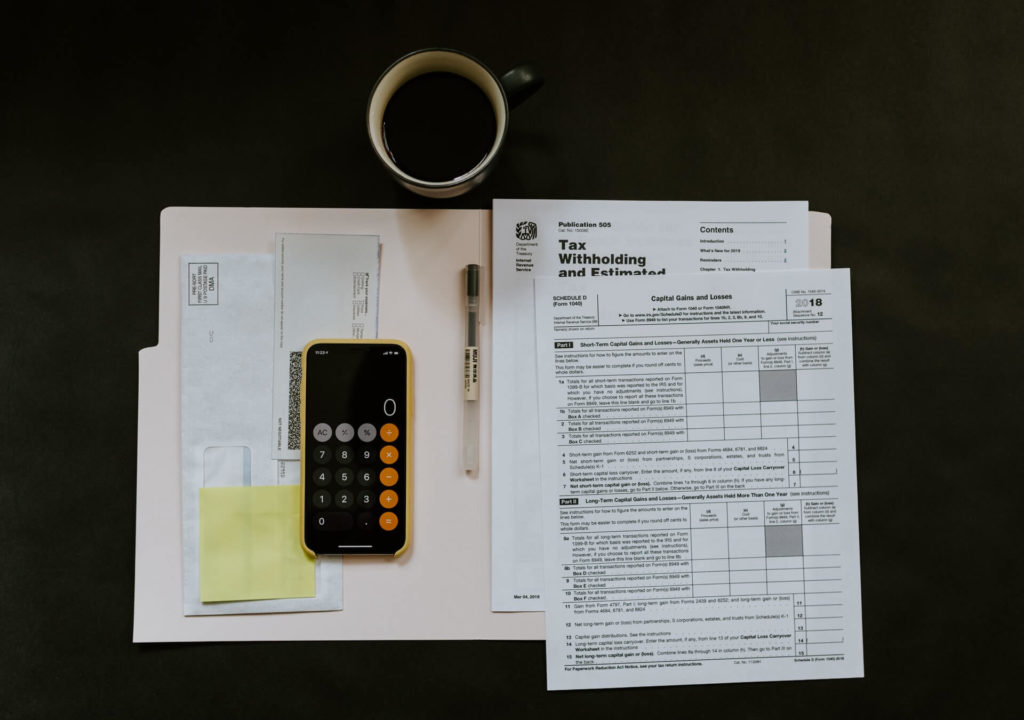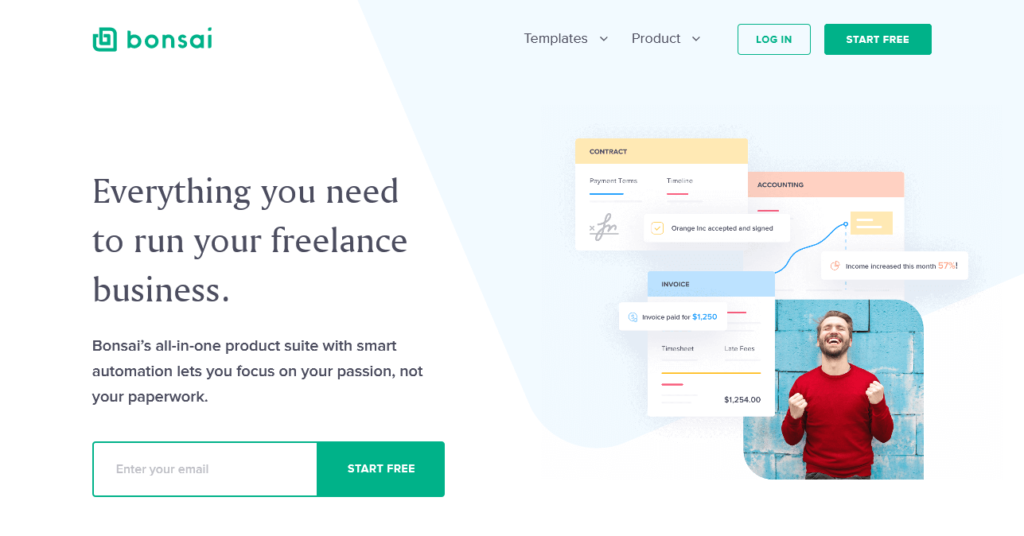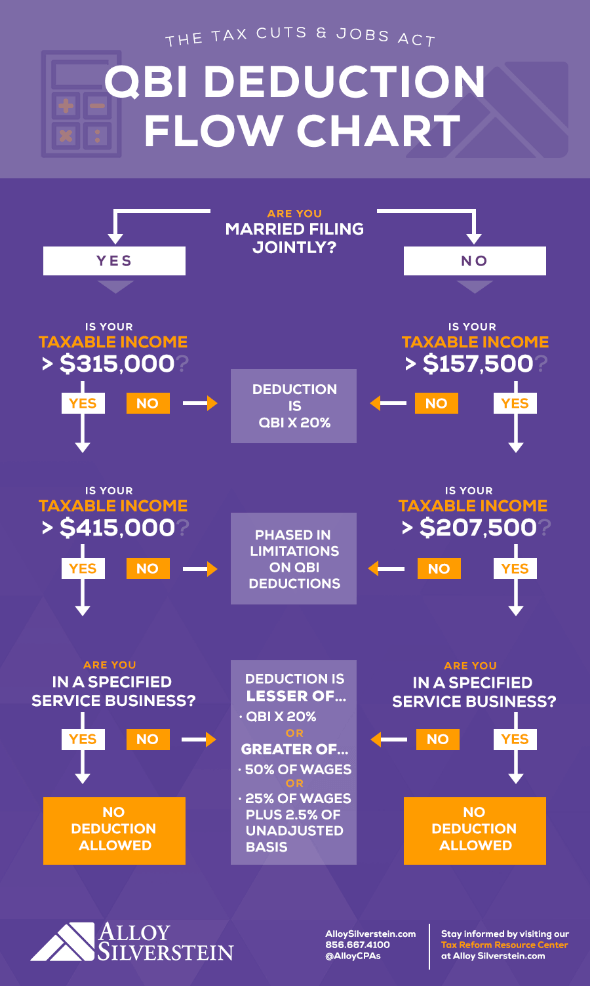Tax season is approaching fast. But did you know that in the US (and many other countries) self-employed workers like bloggers can claim several tax deductions that can significantly lower your bill?
That means full-time bloggers and small home business owners like you; if you pay taxes on your online profits, then you may be overpaying by not writing off business-related expenses.
So what counts as a business expense? From simple office supplies to domain fees, the results may surprise you. Let’s go over a few common deductions to help you lower your tax bill this upcoming tax season.
What are Tax Deductions?

Taxes are paid on taxable income. That is how much you earn (gross income) minus your tax-relevant expenses, called deductions. Taxpayers in the US are qualified to take several different kinds of deductions, from medical charges to money put into a retirement fund.
But one area of particular concern to self-employed workers (such as bloggers) is deductions for job-related expenses. Starting a business is rarely free, and you’re likely to have expenses of some sort even if it’s just web hosting and domain costs.
Ranging from money spent on work supplies to travel expenses, these tax deductions can significantly lower the bill. Bloggers may qualify for quite a few of them. By not reporting them, you’re paying more than you need to each year.
Keep in mind that some deductions only apply to expenses made solely for business purposes, while others will be reduced depending on how often you use certain items for personal reasons.
For instance, a work laptop is a fully deductible expense, but a general home computer you happen to do your work on isn’t (though you may be able to get a percentage of the expense back). A dedicated home office is deductible, but an “office” in your living room or bedroom isn’t.
You should also keep careful track of all invoices, receipts, and other records. If you can’t prove what you spend your money on, your return may be rejected, or an audit down the line could result in costly fines.
7 Potential Tax Deductions Bloggers Can Take Advantage Of
Curious what tax deductions you might qualify for? The list is more extensive than you might think. And if you have any other business expenses not listed here, look into it; there’s a good chance they are covered by the IRS.
Just note that most of these fees require itemizing your tax return rather than taking the standard deduction. So make sure to prepare all your paperwork and receipts in advance.
1. Home Office Expenses
Do you have a room in your house or a detached studio you use for business purposes like writing articles or doing research? Or are you planning on setting one up? Look into the home office deduction.
There’s just one catch: The area must be exclusively for work (which is generally a good idea to keep you productive). A desk in the corner of your bedroom, the entire living room, or a child’s playroom where you write on your laptop is not deductible.

This room also needs to be your principal place of business, meaning you don’t spend most of your time working somewhere other than home. Going out to meet clients or traveling for work is fine, but you need to be doing a majority of the writing, billing, and/or business administration in this room.
Any expenses related to setting up your home office are deductible. You can either pick a simplified deduction and receive $5 per square foot dedicated to your office, or you can use the actual expense method to essentially itemize every little cost that goes into setting it up. These include:
- Renovation costs (painting, flooring, and so on)
- Ongoing repairs to the office
- Losses due to fire or other natural disasters
- Rent, utility, and internet bills – usually partially as these are also for personal use
- Furniture (desks, storage, etc.)
The simplified deduction is easier and less likely to result in an audit, so make sure you keep detailed receipts on hand if you go for the actual expense deduction.
2. Office Supplies
You might not be too concerned about the price of small office supplies like staplers and paper, but these things can get surprisingly expensive as the year goes on. Even with blogging being a primarily digital business, you might be racking up office supply costs.
Start keeping track of all your expenses, even for small things. The list below is a good start.
- Stationery (paper, pens/pencils/markers, notebooks, paper clips, etc.)
- Staplers, scissors, and other small tools
- Printer ink cartridges
- Calculators
- Folders
- Postage and shipping
- Cleaning supplies
Basically, any small supplies that go in your office and are used only in there count as office supplies. And, of course, don’t forget furniture like desk chairs, filing cabinets, and lockers.
3. Equipment and Electronics
Small office equipment can add up fast, but you can end up spending a ton of money on electronics like computers, printers, and the likes. These are among the tax deductions most bloggers should definitely be able to take advantage of.
Generally, you can only deduct a percentage of the cost depending on how often you use it for work or personal reasons. If you use your computer for work 80% of the time, you can deduct 80% of the cost. If your equipment is exclusively for work, however, you can deduct it in its entirety!

You also need to specifically purchase and use the equipment for work in the year you bought it; you can’t deduct the price of a personal computer you began doing work on down the line.
Here’s some examples of work electronics you can potentially add to your tax return.
- Laptops and desktop computers
- Tablets
- Cell phones
- Cameras
- Printers
- Small equipment and peripherals like keyboards, headphones, webcams, USB thumb drives, and modems
This isn’t a free ride to purchase extravagant electronics; you must be able to prove that you use them primarily for work, and abusing the system could result in an audit. But this can make investing in that work laptop or a better camera for your photography blog much more reasonable on your budget.
4. Website Fees, Subscriptions, and Software
Here’s one area where you’re almost definitely missing out. As a blog or online business, you’re likely paying fees to maintain your website. Just like physical costs such as buying office supplies or electronics, online charges are also a deductible expense!
Domain and hosting fees are one of those surprising tax deductions many bloggers might not be taking advantage of. That’s right, you may not need to be paying out of pocket for those expensive monthly fees.
Hiring “independent contractors”, such as web developers or ghost writers, is another deductible expense. And marketing/advertising costs are deductible too.
Software and subscriptions are another big one. Do you pay for tools that help you manage your business or run your blog, maybe an online service like Trello to help you keep track of article ideas, accounting software like QuickBooks, or even just a premium WordPress plugin? You can be reimbursed for these.

Finally, there’s education. You can write off courses, online classes, webinars, online magazine subscriptions, books/ebooks, and any other payments as long as they’re educational to your business. For instance, a course that teaches you to write better articles or a webinar about driving traffic to your site should go on your deduction.
5. Blogging Expenses
This is probably an area where many bloggers miss out on possible tax deductions. It depends a lot on what exactly your blog is about, but it’s worth noting that almost anything is deductible if you can prove it benefits your business. And for something that covers as many topics as blogging, that could be basically anything!
Here are just a few potential use cases:
- A fitness blogger purchases fitness equipment to review.
- A cooking blogger buys ingredients to prepare in an article.
- A photography blogger pays for premium editing software like Photoshop.
- A tutorial blogger purchases tools to demonstrate what they’re doing.
- A finance blogger purchases different financial software for a comparison.
- A web development blogger pays fees to set up a test server for a demonstration.
- A travel blogger pays fees to attend a venue they want to write an article about.
The sky’s the limit here, but be careful to only deduct expenses that are “ordinary and necessary”, meaning they’re standard in your industry and helpful to your business. For example, a food blog purchasing ingredients for a planned recipe is certainly normal and expected.
6. Travel Expenses
Travel can be one of the most expensive parts of running an online business. Gas, hotel fees, and tickets can lose you hundreds in a few nights. But it’s often a necessary part of going to meet clients or forming partnerships with other bloggers.
Luckily, these travel expenses are partially or wholly deductible. Here are a few examples of what’s covered:
- Gas/mileage or rented car fees
- Public transport fares (plane, train, bus tickets, taxis) including baggage charges
- Lodging charges
- Conference or convention tickets (e.g. for WordCamp Europe), as long as it benefits your business
- Meal expenses including tips, as long as the meal is for business purposes (talking to clients, forming a partnership with another blogger, etc.)
The catch: You can’t deduct expenses that are overly extravagant and unnecessary. Upgrading your hotel suite or non-business meals at expensive restaurants are not covered by the IRS.
You also need to be traveling out of your “tax home”. This is not necessarily the city you live in, but the area where you conduct business. So if you need to travel from your home to reach the city where you generally work, this isn’t deductible.
This isn’t a problem for most bloggers, since your primary area of operation is likely in your office.
7. Qualified Business Income (QBI)
Did you know that small business owners and self-employed workers can deduct up to 20% of their net profit (excluding certain sources like income from outside the US, capital gains/losses, and dividends)?

The Qualified Business Income program was launched in 2018. If your taxable income is below a certain threshold, you may qualify for the entire 20% deduction. This began at $157,500/year or less ($315,000/year for joint returns) in 2018 but goes up a bit each year.
If you make more than that, then you may still qualify, but possibly not for the entire 20%.
The QBI is available even if you don’t itemize your bill and take the standard deduction instead. So if there’s one tax deduction you take, make it this one.
Bloggers, Lower Your Tax Bill With These Deductions
Tax time is always a stressful time of year, especially when self-employed workers need to make payments on their income. But shaving a few hundred or even thousands dollars off your bill should make things go a lot smoother. Plus, many of these tips apply whether you pay taxes in the US or another country.
If you have a home office, regularly purchase office supplies or equipment, travel for work, or are paying for web hosting or online subscriptions, look out for these deductions. And if you’ve been avoiding these expenses, now may be the time to set up that home office or to start meeting clients in person. You could get part or all of the cost written off.
And if you missed out on tracking your expenses this year, now is the best time to start keeping a log of all business costs, even for things as small as a stapler or restaurant fees during a client meeting.
Significant tax deductions may target you for an audit by the IRS, but as long as you keep track of your paperwork, there’s a good chance you’ll pass without any penalties. And those penalties may be waived if you have a reasonable cause like misunderstanding what you’re allowed to deduct or incorrect paperwork.
So there’s no harm in attempting to get a tax deduction, but as always, it’s a good idea to speak to a professional to make sure you’re filing your taxes correctly.
Did any of these tax deductions for bloggers surprise you? Which will you be adding to your tax forms this year? Let us know if you learned anything new in the comments!

No Comments